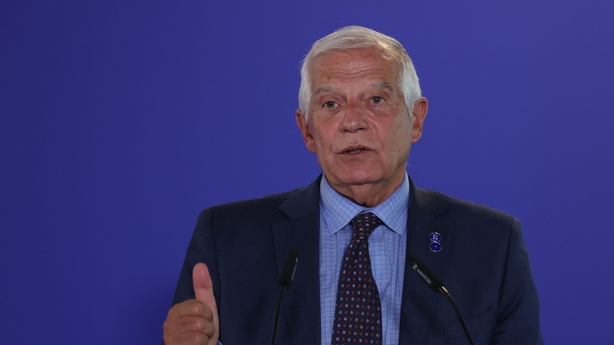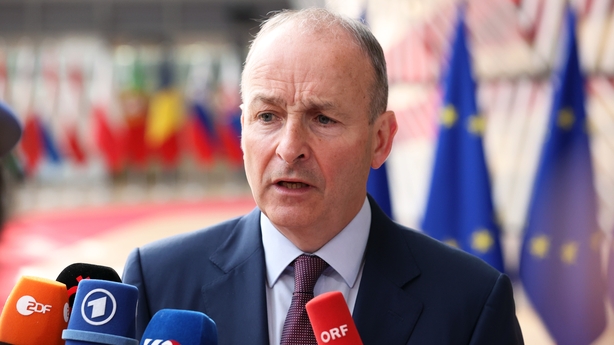EU officials will begin drawing up a list of extremist Israeli settlers who have been attacking Palestinians in the West Bank so they may be subject to potential sanctions, according to the EU's chief diplomat.
The announcement by Josep Borrell followed the statement earlier by Tánaiste Micheál Martin that Ireland would be "very open" to imposing sanctions and travel bans on extremist settlers if there is no agreement at EU level.
Mr Borrell, the EU’s High Representative for Foreign Policy, said the issue was discussed during today’s meeting of EU foreign ministers in Brussels.
While there was as yet no unanimity on the idea among capitals, Mr Borrell said that officials would begin drawing up lists of potential targets.

He told a news conference: "There are too many violent acts [in the West Bank]. Too many people have died, especially following 7 October.
"We discussed this today. I cannot say that we had unanimity, but I haven't yet tabled any proposal. I will be doing so. My services are working on this in conjunction with member states so that we can come up with a list of persons who are known for their violent activities, their attacks against the Palestinians in the West Bank."
Under the EU's sanctions procedure, the European Commission draws up lists of individuals and entities, and member states then give their approval or otherwise.
Mr Borrell said: "We will be proposing sanctions against these persons in the context of the instruments we have at our disposal. We want to defend human rights and member states will then decide whether it is appropriate to adopt these measures."

Micheál Martin had earlier said Ireland would prefer that sanctions were agreed at EU level because they would have more impact, but if no concerted action is agreed, Ireland could act on its own.
"There could be very specific sanctions [at EU level] because what the settlers are doing in the West Bank is undermining any possibility of a contiguous two-state solution to the Middle East [crisis], which we believe is the only viable solution," Mr Martin said.
"The constant attacking and displacement of Palestinians in the West Bank undermines what is declared policy of the European Union, which is a two state solution.
"Given this provocation and the level of violence that's now being used in the West Bank by settlers, it also runs the risk of provoking a further implosion on the West Bank, which is the last thing we need right now."
Mr Martin said the US had led the way on the issue and France was also looking at imposing national sanctions.
Separately, Germany, France and Italy have jointly proposed tightening financial sanctions against senior members of Hamas.
The organisation has been branded a terrorist entity since 2007 by the EU so it is already subject to financial sanctions.
However, some member states believe these sanctions could be strengthened further.
Meanwhile, all eyes will be on a meeting of the UN General Assembly tomorrow, which will discuss a resolution proposed by Egypt and Mauritania for a humanitarian ceasefire in Gaza and the immediate and unconditional release of all hostages.
The resolution will be similar to one which the US vetoed in the Security Council last week.
The motion will be seen as a test of sentiment among EU member states as to whether or not they will also unanimously agree to a call for a ceasefire at the summit of EU leaders in Brussels later this week.
Ireland has co-signed a letter with Spain, Belgium and Malta calling for all 27 leaders to demand an urgent ceasefire in Gaza, and for a second crossing into the enclave to be opened.







